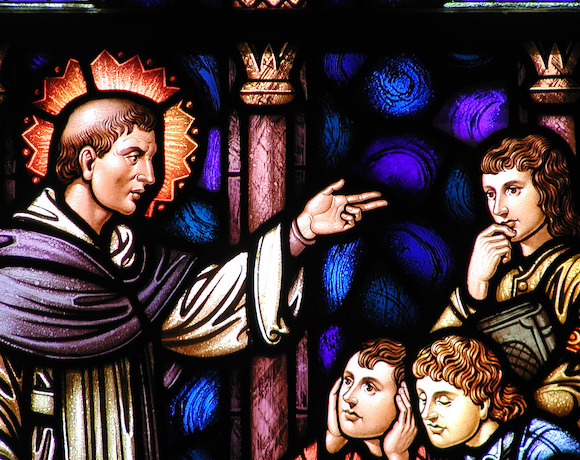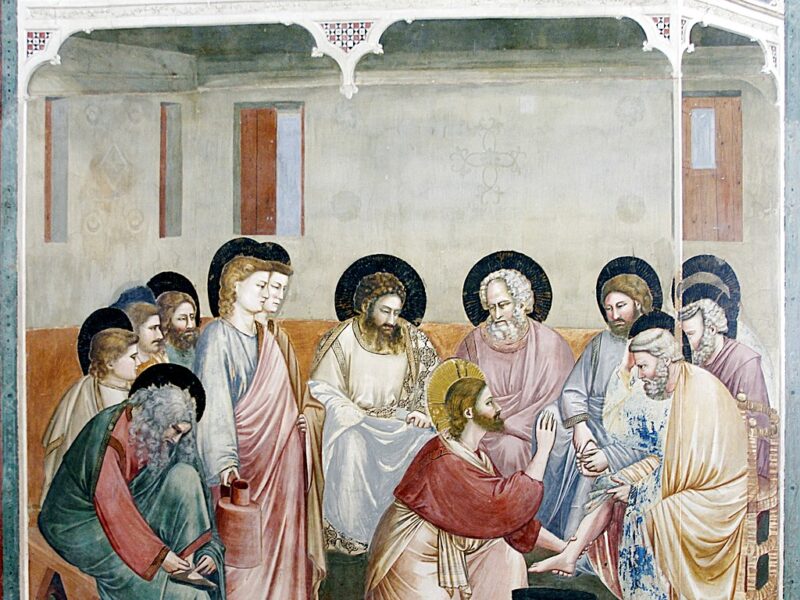
Dominican Life: The Founding of the Order
By Br Marc Pitson | The Order of Preachers, more commonly known as the Dominicans, was founded in 1221 by Dominic de Guzman. St Dominic was born c. 1170 in Caleruega, Spain. St Dominic was born into a humble family of farmers and at the age of 25 joined the Canons Regular under the rule of St Augustine at the Cathedral of Osma.
The Order of Preachers, more commonly known as the Dominicans, was founded in 1221 by Dominic de Guzman. St Dominic was born c. 1170 in Caleruega, Spain. St Dominic was born into a humble family of farmers and at the age of 25 joined the Canons Regular under the rule of St Augustine at the Cathedral of Osma.
It was this that inspired St Dominic to take the Rule of St Augustine as the primary rule for the newly established Order of Preachers. During his time as a Canon, St Dominic was tasked with the job of travelling to Denmark on official business of the king of Castile in order to acquire a bride for the Prince. He set off on his mission accompanied by the Bishop of Osma. It was during this trip in around 1205 that St Dominic first came across the Cathars, who were a group of people deemed to be heretics by the Roman Catholic Church for their Dualist and Gnostic beliefs. St Dominic set about trying to convert these Cathars. It was here that the idea first came to him to dedicate his life to the mission of Preaching and the Salvation of Souls. During this time St Dominic attracted a group of like-minded men who aided him in this mission and who ultimately became the first friars of the new order. In 1215 St Dominic, along with six other men, founded a house in Toulouse in the South of France as a base of operations for their new mission of evangelisation. With written approval from the Bishop of Toulouse, Bishop Foulques, St Dominic and the others began their preaching. In the same year the 4th Lateran Council took place, so St Dominic travelled to Rome in order to gain Papal approval for the foundation of the new order.
In December 1216 Pope Honorius III gave this written approval for the foundation of the order and in January the following year, St Dominic received permission to name this new order the Ordo Praedicatorum or The Order of Preachers. In 1220 Pope Honorius invited Dominic to set up the Order’s Curia at the Basilica of Santa Sabina where the Curia is still based to this day. St Dominic tasked the order with the mission to preach the Gospel and for the Salvation of Souls. During his time travelling around Europe St Dominic became aware of a lack of knowledge regarding the faith and this was leading many people into heresy. He saw this most acutely in the South of France with the Cathars but became increasingly aware of this as a widespread issue. With the motto ‘Veritas’, meaning Truth, St Dominic tasked the friars to study, to learn the truths of the faith and then teach those they came across. It is because of this Dominicans are often associated with the phrase ‘contemplata aliistradere’ roughly translated as ‘to hand down to others the fruits of contemplation’. It is this mission that Friars around the world aim to continue in new and unique ways. In an age of new technology and new problems, the key aim of the Order of Preachers is still to preach the Gospel to all people in all times and places for the salvation of souls.
MORE ON: DOMINICAN HISTORY, DOMINICANS
Sorry, the comment form is closed at this time.



A Website Visitor
The first monastery was not of friars but nuns, founded at Prouille in about 1207 according to Blessed Jordan who states in his Libellus that, “At a place called Prouille, between Fanjeaux and Montreal, he established a monastery to receive certain noble women whose parents had been forced by poverty to entrust them to the heretics to be educated and brought up.” Check this out: https://exhibitions.lib.cam.ac.uk/dominicans/case/dominican-nuns-and-sisters/
A Website Visitor
Thank you for your short, clear and well ordered history of the Dominicans! I enjoyed reading it this Sunday morning.